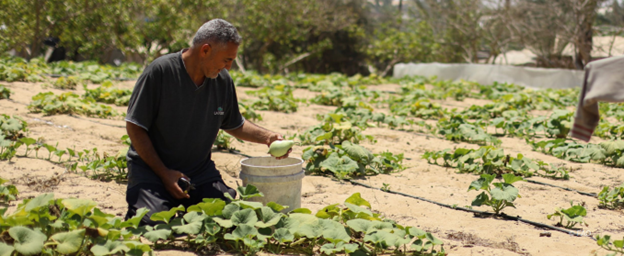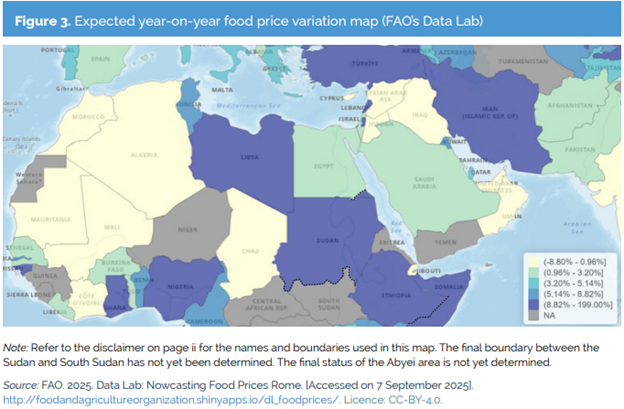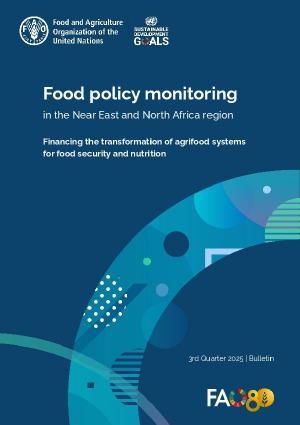Fragile but forward: NENA countries navigate food security amid persistent shocks

The latest Food Policy Monitoring Bulletin issued by the Food and Agriculture Organization (FAO) for the Near East and North Africa (NENA) reveals that despite unprecedented pressures, countries in the region are taking decisive steps to stabilize markets, strengthen resilience and advance the transformation of agrifood systems.
The bulletin highlights that the food security landscape remains fragile and deeply unequal, divided between resource-rich economies capable of absorbing global shocks and conflict-affected countries where millions face acute hunger. Across the region, volatility in food prices, climate extremes and conflict-related disruptions continue to drive vulnerabilities.
FAO’s analysis shows that food consumer prices in the NENA region were on average 33.8 percent higher than in September 2024, with Libya and Palestine experiencing inflation exceeding 180 percent.

Crop prospects for the 2025/26 season are mixed. Wheat output in North Africa is projected to rise by 4.2 percent, driven by improved rainfall in Tunisia and Egypt’s stable irrigated production, while the Near East subregion faces a 10.4 percent decline, largely due to drought and conflict in the Syrian Arab Republic and Lebanon.
8b2375298afc4d3b978364f6cd8a1345.png?sfvrsn=65df3857_1)
Humanitarian concerns are acute: famine conditions have been confirmed in Gaza, with nearly two million people in crisis or worse (IPC Phase 3 and above). Yemen and the Sudan also remain highly vulnerable as conflict, displacement and collapsing markets erode household food security.
Despite these pressures, governments across the NENA region pursued measures to cushion the impact of global and local shocks. Examples include Algeria’s expansion of cold-storage infrastructure, Jordan’s large-scale irrigation rehabilitation, Egypt’s renewable-energy-driven food production, and Lebanon’s concessional financing for its Green Agri-Food Transformation Project. Gulf countries, meanwhile, are accelerating long-term investments in renewable energy, agri-tech, and water security.
The bulletin underscores that these national actions mark an important shift, from reactive crisis management to proactive, resilience-building policies. However, persistent fiscal constraints and subsidy distortions continue to limit broader transformation.
“The region faces a dual challenge: responding to immediate shocks while in the longer term, building sustainable, climate-resilient food systems,” notes AbdulHakim Elwaer, FAO Assistant Director-General and Regional Representative for the Near East and North Africa, emphasizing the need for increasing financing of agrifood systems transformation, including inclusive financing mechanisms.
The Food Policy Monitoring Bulletin is part of FAO’s ongoing effort to track market and policy developments that shape food security and nutrition outcomes across the NENA region. It draws on real-time data, national policy updates, and regional analyses to support governments and partners in evidence-based decision-making.

